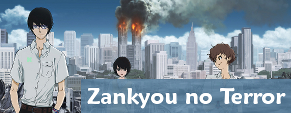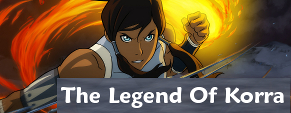Kimi No Na Wa. – Review

While this is a movie that tries its best to base its supernatural elements on Shintoism, you probably shouldn’t spend too much time about whether the mechanics of the supernatural make sense in this movie. Also, instead, how about you just enjoy the view!
Kimi no Na wa. : Look, destiny can be a real bitch sometimes, you know? There’s a person out there who you’re meant to be with! ‘Great!’, you might say, ‘Spares me the hassle of dating!’. But here’s the catch: This person lives hundreds of miles away. And destiny can’t just, like, write on your bedroom-wall “Hey, dumdum, your true love is over there!”. No, gotta make it complicated!
Enter Mitsuha and Taki. The former lives in the countryside and the latter lives in Tokyo. Occasionally, they bodyswap. Well, I guess, everybody needs a hobby. Anyway, they’re meant for each other.
I mean, it’s better than the plot to Serendipity (the movie from 2001 that turns the concept of ‘meet-cute’ into a whole movie for whatever reason), right?
Review:

Another anime banging the drum of traditionalism while it bases its supernatural elements on them.
Kimi no Na Wa has enjoyed huge success at the box-office. And there’s been talk that the movie got snubbed at the Oscar-nominations. It’s easy to see why. After all, it’s another Makoto Shinkai project that dazzles (as usual) with its specific style of storytelling and grandiose animation. As beautiful as the movie is, the story is just as accessible. And weaving together a tale of romance connected to a supernatural event, it’s certainly a stirring tale. But the movie pretty much lost me during its third act.
One impediment to the movie’s ability to connect with its audience is Makoto Shinkai himself. In terms of themes: fated love separated by some sort of plot-device, be it supernatural or mundane, deep longing and the struggle to find happiness in life. Nothing this movie’s doing story-wise would be unfamiliar to anyone who knows Makoto Shinkai’s work. In that way, Makoto Shinkai is quite the auteur-director/writer as all his projects are uniquely “his”. At this point, it’s hard to miss his involvement in a project because of how distinctive and well-known his style has become.
So why’s his particular style an impediment when, for example, David Lynch’s weirdness or Hayao Miyazaki’s Ghibli-projects have equally shown a pattern of familiar themes and story-beats in their works? In my opinion, it’s a matter of depth. What Makoto Shinkai’s works usually care about is usually ALL they care about. The familiar trappings of his movies aren’t the stepping-stone to something else. Compare 5 Centimeters Per Second, The Place Promised In Our Early Days or Voices Of A Distant Star with this movie for example. The similarities aren’t just present, they’re blindingly obvious. And it isn’t like getting through his filmography offers you different takes on what they share in terms of themes and story-beats.
And this is how the movie lost me: It’s pretty much done in the second act. You see, as the synopsis already tells you: There’s a guy called Taki in Tokyo and there’s a girl called Mitsuha in the countryside. Occasionally they swap bodies. And there’s a montage-sequence showing you how the two deal with this curious phenomenon. This is the movie at its best, though. Relying on the solid characterization of the cast, you basically watch these two people trying to improve each other’s lives which are a nice symbolic sign of how they are meant to be together. The movie could’ve spent way more time on them trying to hide the fact that they’re body-swapping while using their individual strengths for each other’s benefit. And over the course of that, they slowly fall in love with each other.
Naturally, in the second half the plot starts to kick in and thanks to a slight plottwist, things get far more complicated than first imagined. It’s the kind of plottwist that not only is there to surprise the audience but to artificially complicate and prolong the narrative. All the intrigue, drama and tension of that third and fourth act only exists because of this one wrench that has been thrown into the proceedings of the narrative. I don’t want to spoil what the twist is, although personally, I saw it coming. And the reason for that is, of course, my familiarity with Makoto Shinkai’s work, of course. So, the plottwist isn’t working for me and then the movie basically spends something like 40 minutes resolving the problems caused by this plottwist.
Things get even more tedious as the story has this rather lengthy epilogue that builds up to a predictable ending. And this is how I really know that the movie has lost me: The final moment of the movie, the emotional moment everything in the movie has led up to – and it left me cold. Now, since it’s a very popular movie, I assume a lot of people feel very differently about this but the ending bored me more than anything else. I pretty much wished the movie had ended a couple minutes earlier.
This shouldn’t be taken, though, as a recommendation not to see this movie. Visually the movie IS stunning. Not only is there a great attention to detail in the visuals but the best way to describe the art and animation in this movie is “beautiful”. And the movie equally portrays the countryside and Tokyo as simply breathtaking places of beauty. There are a lot of wide shots in the movie which focus on the scenery and both Tokyo as well as the countryside become these bright places that feel alive.
I think if you haven’t seen any of Makoto Shinkai’s work this is a great introduction to his style. For those who are familiar with his works, you’ll either love it or be disappointed because he’s simply doing his “usual shtick” here. While it looks great, the story has some fun moments but mostly gets burdened by plot-shenanigans in the second half while the actual story isn’t complicated enough to warrant that baggage. Therefore the ending feels less like a cathartic victory and more like a belabored, circumspect way to get to a conclusion the series could’ve easily reached a little less than an hour before without the plot-twist.
Rating: 7.0/10
Random Thoughts:
- Seriously, I don’t even want to think about how much sense the developments in the second half make (*cough* plot-convenient amnesia *cough*). Thematically and story-wise, they make (kinda) sense and that’s enough. And believe me, it isn’t a positive when I don’t even want to think about it.
- To add my 2 cents to the Oscar-snub-discussion. I mean, the animation-category normally goes for the mainstream-pick anyway, so if you watch a lot of movies, you usually have seen all the nominees. Here we go: Kubo and the Two Strings: From guys who made the (also great) Coraline-movie, this is a great movie about the value of storytelling and a boy’s relationship with his parents. Personally my favorite in that category. Moana: A nice Disney-movie, although the middle dragged a little bit (and I liked this movie more than Frozen, I have to say). But the music is great (that Dwayne-Johnson-song ^^ ) and if you have the chance listen to the outtake of the song “More”. It’s a more Lin-Manuel Miranda-esque version of Moana’s main-song “How Far I’ll Go”. My Life As A Courgette: Well animated, touching story. That’s it. I mean, it isn’t bad. I just don’t see how it warrants this much attention. Red Turtle: A visual spectacle for sure (!) but can’t say this one stayed with me for long. Zootopia: It’s a fun allegory about racism but also another movie that after since it came out I need to be reminded of to remember it.
- Should this movie be in that category? Hmm… Considering how broad the categories of consideration are for this category usually, probably. But, as you can see from my rating alone, I wouldn’t put it into the same category as, say, Princess Mononoke, Paprika from Satoshi Kon or Mamoru Hasada’s work (The Girl Who Leapt Through Time, Summer Wars, The Boy And The Beast), for example. Despite its stunning visuals, there’s just too much in this movie that feels overly familiar (in part because it’s Makoto Shinkai repeating himself kinda) and the overall story isn’t particularly transcendent. This movie’s a romance in all the ways you think it would be. Now in an awards-show that has more distinct categories in terms of animation, this movie should get some awards for its visual presentation.
- Another great thing about this movie: Somehow it’s one of the few animes that seems to get technology. The way the characters are using their phones and how this helps them navigate each other’s lives… It’s very basic but just look at all the animes in this season that supposedly happen in the present: Do you feel like they fully understand how today’s technology influences our daily lives? Sometimes I really wonder what the writers’ room for those shows looks like. Are these all 50+-grandpas who may know how to write an anime but have no idea how to write a 21st-century-teenager?
Posted on February 2, 2017, in Anime, Kimi No Na Wa., Reviews and tagged Anime, Kimi No Na Wa., review, your name., 君の名は。. Bookmark the permalink. 6 Comments.


















“To add my 2 cents to the Oscar-snub-discussion. I mean, the animation-category normally goes for the mainstream-pick anyway, so if you watch a lot of movies, you usually have seen all the nominees.”
THANK YOU
Finally someone isn’t surprised by the snub
LikeLike
But you know what made ME mad…? When I saw people COMPLAIN about the snub – who hadn’t even seen this movie! They just looked at the box-office-numbers and argued “Hey, it’s super-duper popular, guys! This is the time for animes to shine!”. First of all, #OscarsSoWhite just happened two years ago. You’d think most people would know by now how the (badly structured) voting-process of the Oscars works. Second, popularity isn’t an indicator of quality. I mean, remind me: how many nominations did Jurassic World get?
Of course, from time to time the Oscars nominate shit which sometimes even wins (*ahem* like Shakespeare In Love – which is a pile of shit). And I have my doubts La La Land will stand the test of time, either. It is a good movie, no doubt but it certainly isn’t living up to the hype that surrounds it right now. And I fear that this movie might fare the same fate. The fact that it broke box-office-records will always be more important than what the movie did artistically.
LikeLiked by 1 person
it’s very pleasing to see someone has criticized it otherwise all other people are busy worshipping this movie.I enjoyed the first half but the second half was dissapointing.No doubt thi movie is sseriously overrated.The oscar snub and director himself saying that movie is incomplete and unbalanced petty much gives idea about how overrated this series is.
LikeLike
*sigh* Yeah… I wrote the review just an hour after watching it and my gut reaction had been “to not think too much about the logic of the plot”. But now, after a couple of days, I’ve thought about it and let me tell you: This movie has plotholes. They’re of the same magnitude as, say, the ones in The Dark Knight Rises. You can look past them if you don’t value the integrity of the plot too much – but if you can’t do that, those WILL bother you.
And I can’t say what the other critics’ approach has been, what their experience has been like. All I can say is that I don’t see the appeal in how this movie turns out to be. The first half has potential but the second half falls back on all those overly familiar beats you’d expect from a Makoto Shinkai movie.
LikeLike
I enjoyed reading your review although I don’t feel the same as you about this movie on some points.
At first, when it was announced and when it came out in Japan, I wasn’t really interested. The story seemed pretty simple (two teenagers switching their bodies…). And the previous works of Makoto Shinkai I’ve seen (Kumo no Mukou, Hoshi wo Ou Kodomo, Byousoku 5 centimeter) didn’t impress me much except for their visuals. But I went to see Kimi no Na Wa at the theater and I really liked it.
The first part of the movie is kinda funny and we’re getting to know the main characters, where they live (there really is a good contrast between the city and the countryside), their family/friends… But then something happens and I really liked it because I wasn’t expecting that (I was beautiful and cruel at the same time). I was wondering what Taki was going to do, if his actions were going to change something… Until the end I was asking myself what would be occuring, what would the characters become… I really liked the differents events and I felt so relieved at the end. The second half wasn’t disappointing at all for me.
Taki and Mitsuha are good characters. I’m usually not fond of romance stories but I liked the one presented in Kimi no Na Wa, their relation was really interesting.
Backgrounds were beautiful, maybe not that amazing if you’ve watch many Shinkai’s movies but I enjoyed them. I agree that the chara-design is not impressive, it is even kinda simple but I was so enthralled by the story that it didn’t matter for me.
Musics were really good, I particularly liked the ending song.
To be short, I liked this movie, it became one of my favorite animes (I’ve watched it at the theater twice lol). I don’t know if we can say that’s a masterpiece but I don’t think it is overrated (coming from someone who didn’t expect much of this movie).
LikeLike
“But I went to see Kimi no Na Wa at the theater and I really liked it.”
See, since it’s visually such a strong movie, this is actually an important part (and a valid defense of the movie). There are plenty of movies like Gravity, Mad Max: Fury Road or Avatar that are simply better if you experience them in a theater. I haven’t had that experience and this could mean I didn’t see the movie in its “best environment” so-to-speak.
I hear movie-critics sometimes talk about this when it’s relevant but I don’t think anime-criticisms take this into account often. Mostly since we usually don’t see the stuff we review at a theater.
“But then something happens and I really liked it because I wasn’t expecting that (I was beautiful and cruel at the same time).”
This is where the movie lost me actually. At that point, I was already thinking “Oh, this is Makoto Shinkai doing his usual shtick. Okay, so how do his movies usually go… Two lovers who are separated is usually the focus… So how could you separate two lovers who bodyswap…?” That was my thinking and it spoiled the plottwist for me.
Although, having thought about it a bit, it creates a ton of plotholes – as that trope is prone to do. But as I said, I’m fine with that. My gut already told me I shouldn’t think too much about it but my overall impression was “Good enough for me!”.
“I really liked the differents events and I felt so relieved at the end. The second half wasn’t disappointing at all for me.”
And since I had predicted the plottwist as well as figured that it’s just Makoto Shinkai doing his usual thing, I didn’t have this anxiety you’re supposed to have at that moment in the movie. It all just seemed like busywork to me to get to the answer of the basic question “Does he get the girl – or not?”. And with Makoto Shinkai we’ve previously seen all the variations of that answer already. So, once the movie gets to this epilogue, I’m like “Just say it… I don’t care about the particulars. Give me a Happy End, Sad End, Bad End… whatever, I don’t care! Just end it!”.
“I don’t know if we can say that’s a masterpiece but I don’t think it is overrated (coming from someone who didn’t expect much of this movie).”
Masterpiece, no… The question I wonder, though, is how it compares to Makoto Shinkai’s other work. I would have to see it all again to make a judgement on that. Partly because he has some goddamn persistent habits in terms of storytelling. It’s hard to say when he has nailed those familiar tropes best.
But as I said in the review: If you want to get into Makoto Shinkai’s work, this is a good place to start.
LikeLiked by 1 person